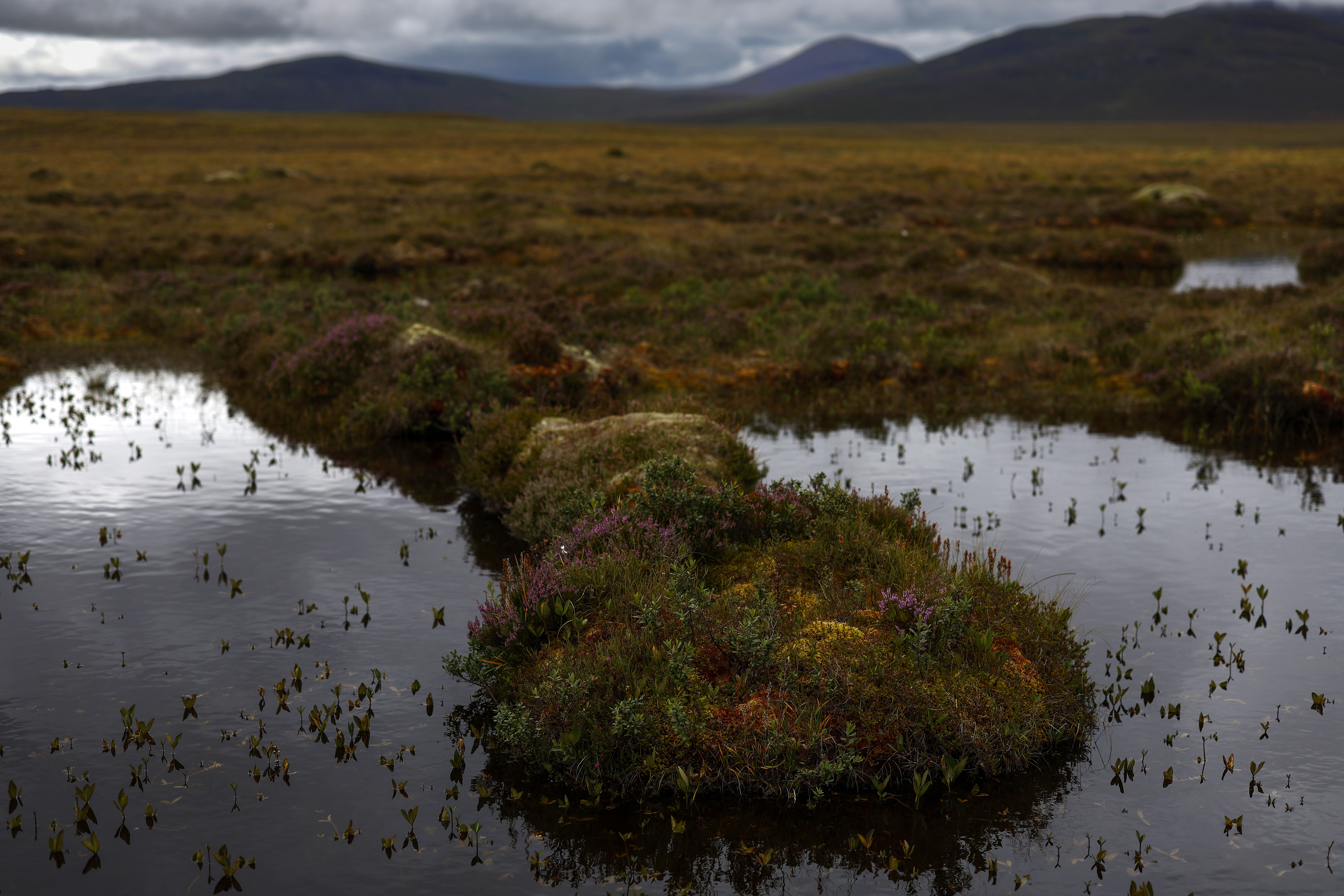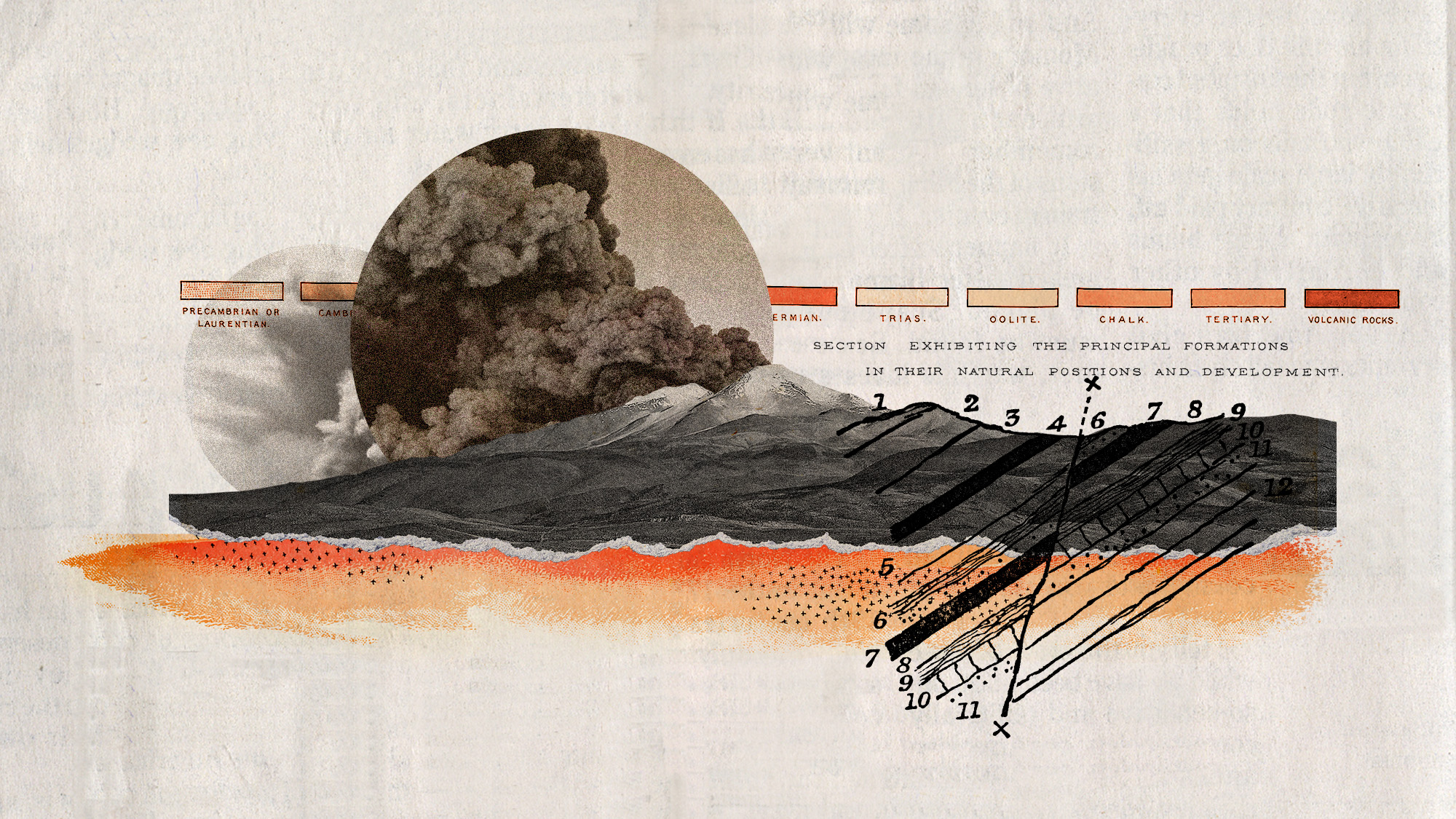Peatlands are the climate bomb waiting to explode
The destruction of peatlands can cause billions of tons of carbon to be released into the atmosphere, worsening the already intensifying climate crisis


A free daily email with the biggest news stories of the day – and the best features from TheWeek.com
You are now subscribed
Your newsletter sign-up was successful
The number and intensity of wildfires have increased due to climate change and are only expected to worsen over time. Along with ruining air quality and causing destruction, wildfires also play a part in worsening climate change in general. This is because the burning damages peatlands and permafrost peatlands, which could have catastrophic outcomes.
What are peatlands?
Peatlands are "terrestrial wetland ecosystems in which waterlogged conditions prevent plant material from fully decomposing," per the International Peatland Society. They are located on every continent and climate and because they are made up of organic matter have trapped lots of carbon dioxide. Many peatlands have been frozen over thousands of years in permafrost with "nearly 20% of the permafrost areas, store[ing] nearly 50% of soil carbon of the permafrost ecosystem, equal to nearly 10% of the global terrestrial soil carbon pool," according to Phys.org.
"Peatlands are one of the world's largest terrestrial carbon stores, because they've been taking in carbon for thousands and thousands of years and storing it there," Lorna Harris, of the Wildlife Conservation Society of Canada, told CBC. Frozen peatlands in particular are holding on to almost 40 billion tons of carbon within them, which is a ticking time bomb of emissions due to climate change, according to ScienceDaily.
The Week
Escape your echo chamber. Get the facts behind the news, plus analysis from multiple perspectives.

Sign up for The Week's Free Newsletters
From our morning news briefing to a weekly Good News Newsletter, get the best of The Week delivered directly to your inbox.
From our morning news briefing to a weekly Good News Newsletter, get the best of The Week delivered directly to your inbox.
How are they in danger?
Climate change has put permafrost peatlands in danger as the temperature rises and wildfires become more prevalent. Humans have also been draining peatland to convert for agricultural or forestry purposes. "When El Niño brings dry weather to the region, fires in the region can go out of control for several weeks or more, with lots of peat burning," Loretta Mickley, a wildfire expert, told The Harvard Gazette.
The warmer temperatures have also caused "zombie fires," which are underground fires that "don't die easily," according to The Conversation. These fires "do not flame but burn more slowly and have the tendency to spread deep into the ground and spread laterally." The Arctic is also warming at an accelerated rate compared to the rest of the world, and as the fires move northward, "peat soils rich in dead plant material burn at an accelerated rate."
"The burning peat also removes the layer insulating permafrost, the region's frozen carbon-rich soil," The Conversation continued. Both permafrost and peatland are becoming increasingly vulnerable to wildfires. "The chemical stability of permafrost peatlands carbon pool have closely related to the environmental disturbance factors," remarked Dr. Gao Chuanyu, the co-author of a 2023 study on how climate disturbances impact the stability of peatland carbon pools, told Phys.org.
What happens if they are destroyed?
The destruction of peatlands can cause billions of tons of carbon to be released into the atmosphere, worsening the already intensifying climate crisis. Also, "fires can thaw permafrost, beginning a cascade of microbial processes that may also generate greenhouse gases. The biggest problem is "that carbon will take at least another 1,000 years to go back into the peat," Mickley explained.
A free daily email with the biggest news stories of the day – and the best features from TheWeek.com
"So you get the carbon loss from the fire and you get the carbon lost from the permafrost thaw and then a more rapid change in the land cover," Harris remarked. "If we don't restore that ecosystem to at least make it carbon neutral and ideally make it a carbon sink again, it is a source of greenhouse gas emissions to the atmosphere."
Devika Rao has worked as a staff writer at The Week since 2022, covering science, the environment, climate and business. She previously worked as a policy associate for a nonprofit organization advocating for environmental action from a business perspective.
-
 How climate change is affecting Christmas
How climate change is affecting ChristmasThe Explainer There may be a slim chance of future white Christmases
-
 Why scientists are attempting nuclear fusion
Why scientists are attempting nuclear fusionThe Explainer Harnessing the reaction that powers the stars could offer a potentially unlimited source of carbon-free energy, and the race is hotting up
-
 Canyons under the Antarctic have deep impacts
Canyons under the Antarctic have deep impactsUnder the radar Submarine canyons could be affecting the climate more than previously thought
-
 NASA is moving away from tracking climate change
NASA is moving away from tracking climate changeThe Explainer Climate missions could be going dark
-
 What would happen to Earth if humans went extinct?
What would happen to Earth if humans went extinct?The Explainer Human extinction could potentially give rise to new species and climates
-
 Bacteria can turn plastic waste into a painkiller
Bacteria can turn plastic waste into a painkillerUnder the radar The process could be a solution to plastic pollution
-
 A zombie volcano is coming back to life, but there is no need to worry just yet
A zombie volcano is coming back to life, but there is no need to worry just yetUnder the radar Uturuncu's seismic activity is the result of a hydrothermal system
-
 'Bioelectric bacteria on steroids' could aid in pollutant cleanup and energy renewal
'Bioelectric bacteria on steroids' could aid in pollutant cleanup and energy renewalUnder the radar The new species is sparking hope for environmental efforts



